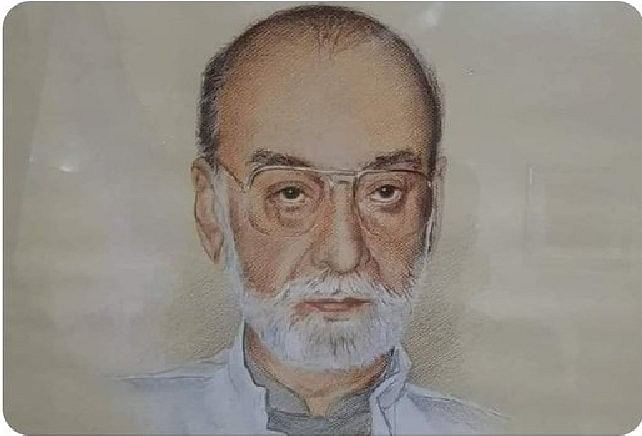New Delhi: Sardar Attaullah Mengal, the first elected Chief Minister of Balochistan province in Pakistan, died Thursday at a hospital in Karachi after suffering from a critical illness, according to reports.
Pakistani senator Tahir Bizenjo and Opposition leader in the National Assembly Shehbaz Sharif were among those who expressed condolences over his passing.
Bizenjo described him as a leader who “remained steadfast against all the injustices in Balochistan”.
Deeply hurt to learn about the passing of veteran Baloch leader Sardar Attaullah Mengal. My heartfelt condolences to Mengal family and BNP.
He remained steadfast against all the injustices in Balochistan all his life. His contributions for balochistan will always be remembered. pic.twitter.com/QcGxMkhmPQ
— Tahir Bizenjo (@TahirBizenjoNP) September 2, 2021
Saddened by the news of Sardar Ataullah Mengal's passing away. He was a prominent tribal leader & the first Chief Minister of Balochistan. May Allah rest his soul in peace! I extend my heartfelt condolences to Sardar Akhtar Mengal and his family.
— Shehbaz Sharif (@CMShehbaz) September 2, 2021
Meanwhile, Congress Rajya Sabha MP Abhishek Singhvi remarked: “May his dream of an independent Balochistan find fruit. (sic)”
My condolences to the family, friends and well wishers on the sad news of passing away of Veteran Baloch leader, Sardar Ataullah Mengal, former Chief Minister of Pakistan-occupied #Balochistan ! May his dream of an independent Baluchistan find fruit.
— Abhishek Singhvi (@DrAMSinghvi) September 2, 2021
Who was Sardar Attaullah Mengal
Born in 1929, Mengal was raised in Balochistan’s Lasbela and later moved to Karachi. On 1 May 1972, he became the first chief minister of Balochistan after the National Awami Party (NAP) won the first elections in the province.
His tenure lasted all of eight months after the then Prime Minister, Zulfikar Ali Bhutto dissolved NAP and threw Mengal and several other Baloch leaders into jail on grounds of secessionist activities.
Mengal spent much of his life in exile, before returning to Pakistan to form the Balochistan National Party (Mengal) in 1996. His son, Akhtar Mengal, currently serves as the chairman of the party.
Also read: Hazaras are voting with their feet and fleeing Afghanistan. Quetta is their new refuge
Political career
At the age of 25, the Baloch leader was declared the chief of the Mengal tribe. Ghaus Bakhsh Bizenjo, a founding member of NAP who also served as the governor of Balochistan in the early 1970s, had a great influence on Mengal’s political career. Mengal was elected to the West Pakistan provincial assembly in 1962 and Bizenjo ran his election campaign.
Before his death, Mengal was considered the fourth and only living “pillar” of Baloch nationalism. The other pillars included Ghaus Bakhsh Bizenjo, Nawab Khair Bakhsh Marri and Nawab Akbar Khan Bugti, who had all passed away.
According to a Tribune report, Irshad Abdul Kadir, a barrister and novelist who had known Mengal since the 1950s, described him as a “soft-spoken, yet charismatic; reserved, yet eloquent” individual.
In a 2018 interview with Dawn, Mengal — who was 89 at the time — described how tribalism has hurt the Baloch nationalist movement.
“The first tenet of this tribalism is enmity. Tribes divide the Baloch and they don’t let them work for a common cause or for unity,” he said. “Even our Baloch nationalists, who claim to be fighting for the rights of the Baloch, don’t come out of their tribes. So how can you expect an ordinary Baloch person to leave tribalism behind when the so-called Baloch nationalists stick to their tribes with pride?” added Mengal.
CM for eight months
Mengal became the first chief minister of Balochistan on 1 May 1972. However, his government was dissolved within eight months by Bhutto.
According to the book ‘The Longest March: Balochistan’s Struggle for Human Rights and Self-Determination‘ by Aziz Baloch, Kyle Farquharson and Shawn Forbes, Pakistani security forces discovered an “arms cache” at the Iraqi embassy in Islamabad in 1973 which Bhutto suspected was being smuggled to Baloch separatists.
Bhutto dissolved the provincial government of Balochistan and banned NAP. A series of sweeping military operations, raids and arrest followed in the province.
By 1975, Mengal, the other three pillars of the Baloch movement and several others were detained on charges of secessionist activities. When Bhutto’s government was toppled by General Zia-ul-Haq in 1977, most of the leaders were released.
Mengal spent most of his life in self-exile in Britain during Zia-ul-Haq’s rule, before returning to Pakistan and launching BNP-M in the 1990s. BNP-M swept the 1997 elections but the government was later dissolved due to tensions with the federal government. The party has also been known to boycott elections in 2002 and 2008 due to growing strains with the federal establishment.
Also read: China condemns suicide bombing in Balochistan, calls security situation in Pakistan ‘severe’
